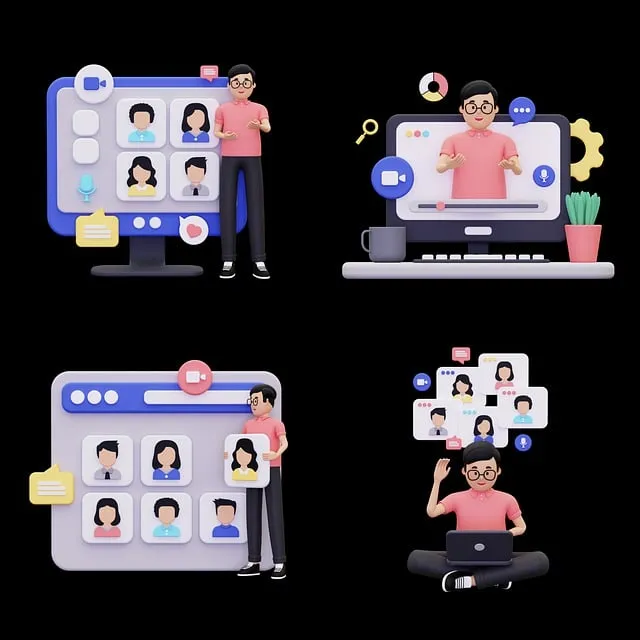Environmental researchers and activists utilize anonymous browsing tools and stealth search engines to protect their identities and data privacy while investigating environmental issues. These technologies encrypt connections, mask IP addresses, and prevent tracking, ensuring they can access crucial information without leaving digital traces that could compromise their safety or the success of their initiatives. By employing secure anonymizing networks and virtual private networks, they safeguard against surveillance from governments, corporations, or other potential threats, fostering an open exchange of vital environmental data and enabling uninhibited research and communication on sensitive topics.
Environmental scientists and activists face unique challenges when conducting research and advocating for change online. The need for privacy and anonymity is paramount, as they often deal with sensitive data and controversial topics. Traditional browsers leave behind digital footprints, exposing researchers to potential risks. This article explores the importance of anonymous browsing tools, highlighting their critical role in protecting journalists’ sources and ensuring secure search engine results. We’ll delve into the features that make these browsers a game-changer for environmental professionals.
- Understanding the Need for Privacy in Environmental Research
- Traditional Browser Risks and Limitations for Activists
- Features of an Anonymous Browser for Environmental Professionals
- Ensuring Security: Best Practices for Safe Online Activity
Understanding the Need for Privacy in Environmental Research

Environmental scientists and activists often deal with sensitive data and critical research that can have significant impacts on industries, governments, and public perception. In many cases, their work involves uncovering environmental injustices, monitoring pollution levels, or studying the effects of climate change. This vital research must be conducted in an environment where privacy and anonymity are paramount to protect both the individuals involved and the integrity of the findings.
Stealthy search engine results for journalists—or anonymous browsing tools—play a crucial role in ensuring these professionals can operate freely without fear of surveillance or data breaches. By shielding their digital footprints, these tools enable researchers to explore diverse sources without compromising their identities, thus fostering an environment conducive to innovative and unfettered environmental research and advocacy.
Traditional Browser Risks and Limitations for Activists

In the digital age, environmental scientists and activists play a vital role in sharing information to drive change. However, their work often requires them to maintain a high level of anonymity to protect themselves from surveillance, harassment, or retaliation. Traditional web browsing poses significant risks due to traceable IP addresses and cookies that can reveal sensitive information about their activities and identities. This is particularly concerning for researchers investigating corrupt corporations or governments, as well as activists organizing protests and campaigns.
The use of regular browsers also limits the privacy and security of these individuals. Their online searches, including queries related to environmental issues, could potentially be monitored by authorities or hostile actors. To mitigate these risks, many professionals in this field turn to anonymous browsing tools that offer encrypted connections, mask IP addresses, and prevent tracking. These features are especially crucial for journalists and whistleblowers who rely on stealthy search engine results to uncover and share critical information without fear of exposure.
Features of an Anonymous Browser for Environmental Professionals

For environmental scientists and activists, navigating sensitive topics online requires a special tool that respects their privacy and anonymity. An anonymous browser is designed to offer stealthy search engine results, ensuring journalists can access critical information without leaving digital footprints that could compromise their work or safety. This tool is particularly valuable for researchers delving into controversial subjects, as it allows them to explore potential sources and data without fear of being tracked by those who might oppose their findings.
Key features include advanced privacy protections such as no cookies, JavaScript blocking, and a secure proxy network that masks IP addresses. These measures make it nearly impossible for third parties to trace online activity back to the user. Additionally, these browsers often come with built-in encryption, ensuring that every connection is secured, from initial search queries to data downloads. This level of security enables professionals to engage in uninhibited research and communication, fostering a more open exchange of vital environmental data.
Ensuring Security: Best Practices for Safe Online Activity

For environmental scientists and activists, anonymity is a crucial tool to protect their identity and maintain the integrity of their research and activism. When conducting sensitive investigations or organizing campaigns online, using a secure and anonymous browser can significantly enhance privacy. This practice ensures that personal data remains hidden from prying eyes, including those of governments, corporations, or other parties who might seek to silence or discredit their work.
Best practices for safe online activity include utilizing trusted anonymizing networks (TANs) or virtual private networks (VPNs) to encrypt internet traffic and mask IP addresses. Additionally, employing privacy-focused search engines like Stealthy Search Engine Results for Journalists can provide more anonymous and secure browsing experiences. These tools help maintain the anonymity of researchers and activists, allowing them to explore sensitive topics without leaving digital footprints that could compromise their security or the success of their initiatives.
For environmental scientists and activists working in sensitive areas, protecting online privacy is paramount. By utilizing an anonymous browser, these professionals can conduct research, share data, and mobilize efforts without fear of exposure or retaliation. This ensures their safety while empowering them to have a real impact on environmental issues. With the right tools, they can navigate the digital landscape stealthily, enhancing their ability to advocate for change and contribute to sustainable solutions.
